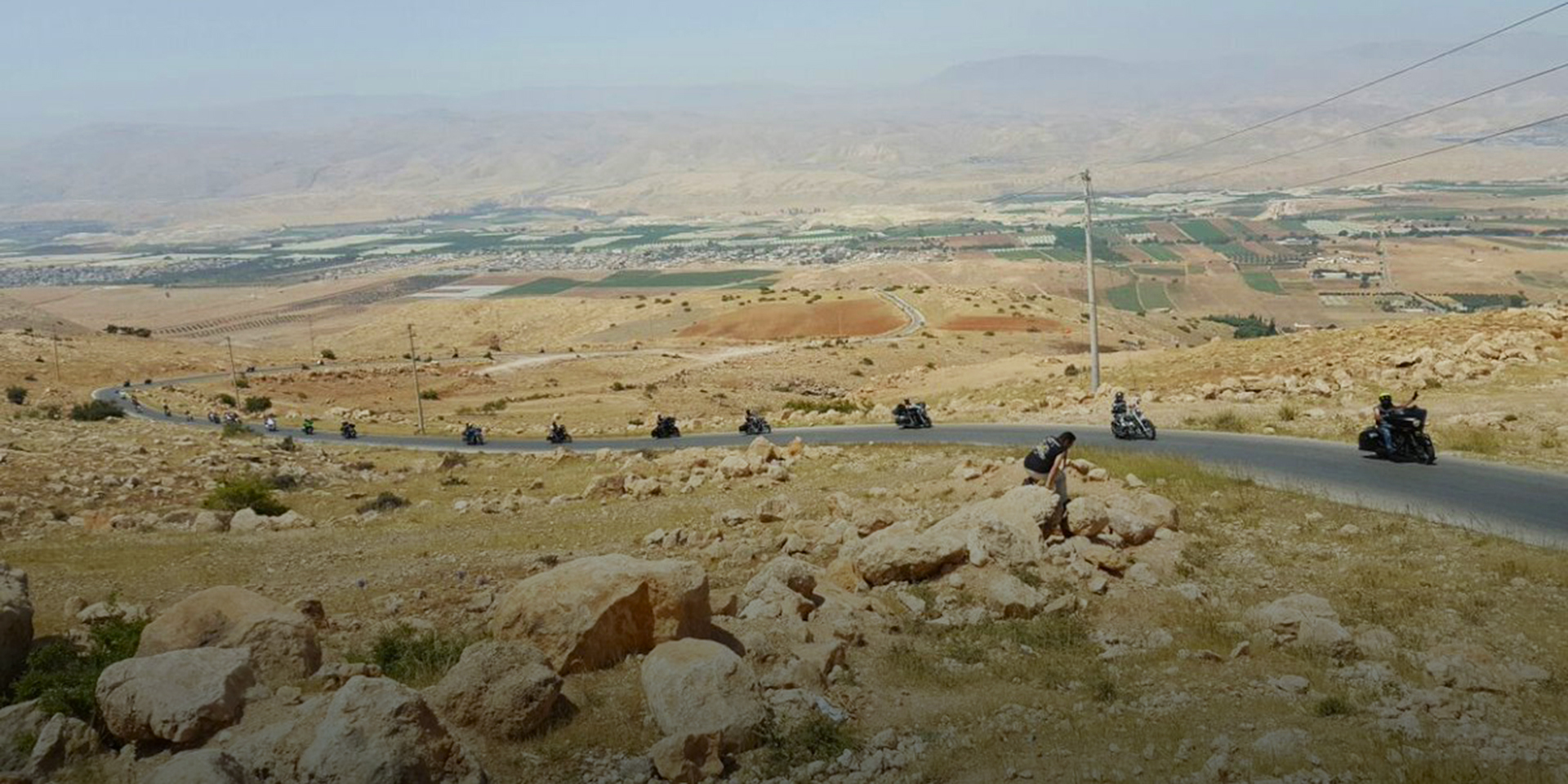
Tourism Dollars Make the World Go Round
November 27, 2017 | 4 Minute ReadGrowth in the tourism industry creates a ripple effect across a country's economy. Is the development community taking advantage of this opportunity to catalyze broad-based economic growth?
Each year, an unlikely scene unfolds in Jordan. Hundreds of motorcyclists gather from across the globe to take part in the Jordan Rider Rally Weekend — an event organized by the Royal Motorcycle Club of Jordan and the Jordanian Ministry of Tourism and Antiquities. Over the course of a weekend, hundreds of motorcyclists will depart from Amman, Jordan’s capital, to travel 400 kilometers across winding roads and pass through scenic and historic towns like Madaba and Jerash. This event is only one of many unique attractions that draw several million people to Jordan each year.
Tourism is an important and growing industry in Jordan. It accounts for close to 20 percent of GDP and is expected to grow at a rate of more than 5 percent over the next 10 years. On both a national and local level, tourism is hugely important to the growing economy, because the tourism industry impacts multiple industries. Along the 400-kilometer journey, these bikers will stay in hotels or local homestays, drink and eat food produced by local farmers and sold in restaurants and grocery stores, purchase handicrafts, visit mechanics and auto shops, and contribute to the tolls that pay for the recently paved roads that carry them across the country.
What do these diverse sectors of the economy have in common? They are brought together and in part fueled by tourism. Tourism creates linkages across seemingly disparate sectors and actors in the economy, and when done properly, creates a powerful multiplier effect, which can generate broad-based economic benefits at the national level.
The Broad Reach of Tourism
Tourism is one of the world’s largest industries, in part because it incorporates and contributes to so many sectors either directly or indirectly in its value and supply chains. Some sectors, like the hospitality industry, transportation services, and entertainment and recreation services, are more obvious industries that benefit from and contribute directly to a growing tourism economy. However, there are a variety of industries and sectors that not only contribute to a thriving tourism economy, but are themselves fueled by a growth in tourism.
- Agriculture, for example, is a sector with strong linkages to tourism. The more direct recipients of tourism dollars, hotels and restaurants, need a steady and large supply of fresh foods and beverages for guests. As tourism grows, local producers benefit from the increase in demand, prices rise, and the sector as a whole can grow, particularly when it is well-integrated into a broader tourism supply chain. Additionally, increased demand for agricultural products generates spillover effects to rural non-farming activities, stimulating the development of the agro-processing industry and boosting demand for rural transport, storage, and trading activities.
- Construction and infrastructure is also both a precursor to and recipient of tourism investments. A thriving tourism economy can spur both public and private investment in new infrastructure, significantly benefiting the construction and infrastructure sectors. New and expanding tourism enterprises might demand new construction in the form of office or retail space, while governments will need to spend on tourism-supported infrastructure such as airports, roads, ports, hospitals and banks, in order to create a competitive and attractive tourism destination.
- Finance is another sector that can benefit significantly from a thriving tourism economy. As the tourism sector in a country grows, new and existing enterprises require investment and access to finance to grow their business. By expanding to reach these small- and medium-sized enterprises (SMEs) through tailored financial products and services, banks and other financial institutions can open up a large and diverse new portfolio. Further, as these enterprises grow with new investments and access to finance, they are more likely to take advantage of financial products in the future. This linkage mutually benefits and stimulates growth both for the financial sector and for tourism enterprises and entrepreneurs.
Mechanics of Broad-Based Economic Growth
Simply put, the long arm of tourism touches an incredible range of actors both directly and indirectly. In addition to catalyzing growth in the sectors above, tourism also affects a country’s economy as a whole in a way that goes beyond the impact to any one industry. These are only a few of the ways in which tourism can spur growth.
- Tourism stimulates investments in new infrastructure and human capital. Tourists, and in particular, international tourists, often have high standards when traveling for leisure. To remain competitive on a global level, tourism creates an incentive for countries to invest in new infrastructure to meet the needs of this international clientele. Perhaps even more important is the investment needed in human capital to develop a tourist-friendly workforce that is prepared to meet the demands of international visitors.
- Tourism creates jobs and stimulates earnings and income growth. In the sectors described above, investment in tourism can prompt the creation of new jobs and higher salaries for host country nationals. In Jordan for example, the total contribution of tourism to employment in 2016, including jobs indirectly supported by the industry, was 18.1 percent. The International Labor Organization estimates that in terms of the sector’s employment-generating capacity, one job in the core tourism industry creates about 1.5 additional or indirect jobs in tourism-related economic activities. As these workers spend part of their earnings, this creates a strong multiplier effect whereby the original investment in tourism produces a much larger impact on the overall economy.
- Tourism promotes competition and innovation. The tourism industry is uniquely suited to promote the exchange of new ideas and technology, which can spur innovation and enterprise development. A thriving tourist economy often spurs the creation of local enterprises, in particular SMEs such as local artisans and service providers, who develop new businesses to meet the demands of a new customer base.
Strengthening Linkages and Supporting Broad-Based Economic Growth
The numbers do not lie. In 2016, tourism contributed $7.2 trillion (9.8 percent of global GDP) to the global economy and produced one out of every 11 jobs, many of which were in the Global South. In developing countries especially, the tourism industry, with its linkages woven throughout many of the sectors mentioned above, is inherently a powerful force for broad-based economic growth and development. At the same time, the international community can still play an important role in strengthening these linkages and maximizing the development impact of tourism. International donors and development organizations are already contributing in significant ways across the globe. Through their ability to convene actors, and in particular, create connections between the public and private sector, development organizations like Chemonics are deepening the linkages that make tourism such a compelling agent for broad-based economic growth.
With 2017 being the International Year of Sustainable Tourism for Development, the U.N. World Tourism Organization’s Global Conference on Jobs and Inclusive Growth taking place in Jamaica represents an opportunity for the international community to deepen its commitment to this work. To join the discussion, follow #IY2017 and #UNWTO on social media.






















